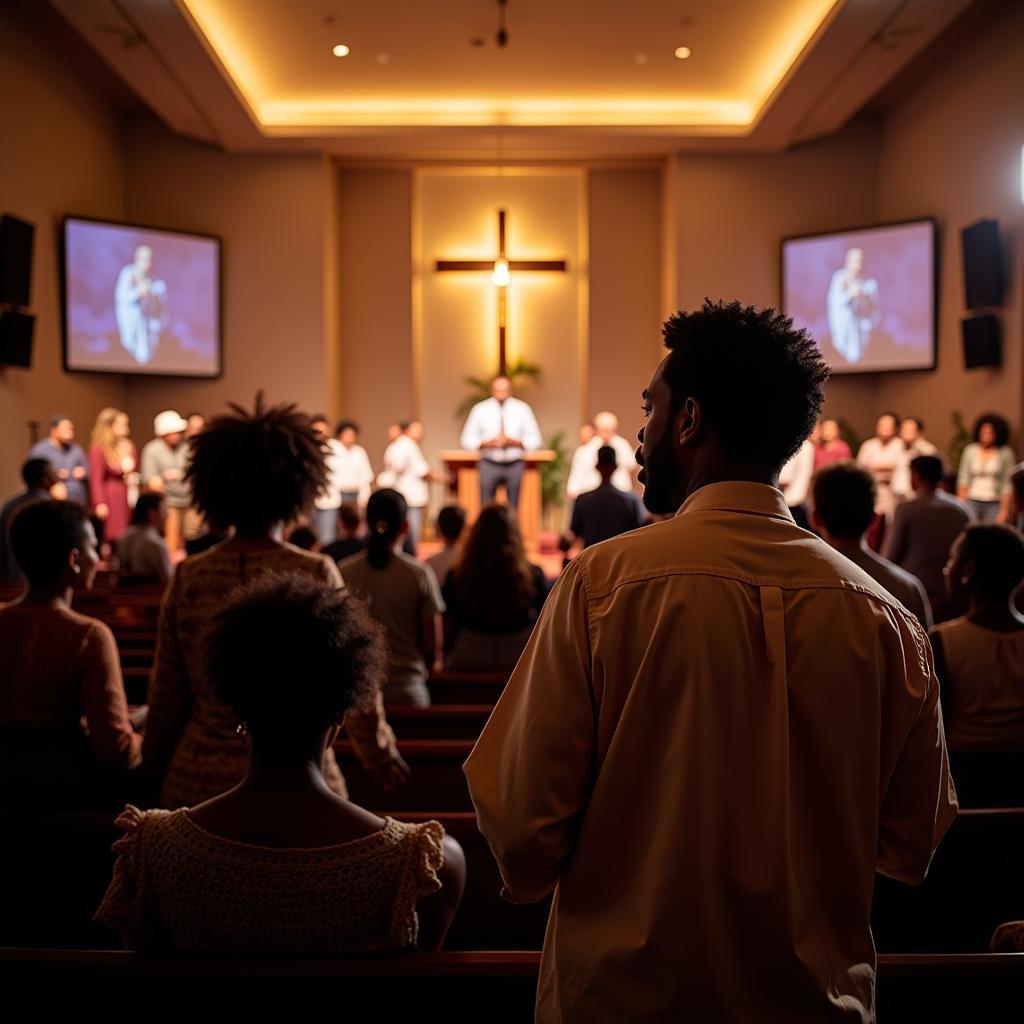The African American Concept of Time: Beyond “CP Time”
The African American Concept Of Time is often misunderstood, with stereotypes like “CP Time” (Colored People Time) perpetuating harmful generalizations. This article delves into the cultural nuances and historical context that have shaped the unique relationship African Americans have with time, moving beyond simplistic labels to understand its deeper significance.
 A vibrant gathering of an African American community, showcasing their rich cultural heritage and social connections.
A vibrant gathering of an African American community, showcasing their rich cultural heritage and social connections.
Historical Influences on Time Perception
To truly grasp the African American concept of time, we must first acknowledge the profound impact of history. The transatlantic slave trade ripped Africans from their ancestral lands, severing cultural ties and imposing a brutal system of forced labor where time was controlled by slave masters. This experience ingrained a deep-seated understanding of time as a tool of oppression.
Resistance and Reclaiming Time
However, even within the confines of slavery, African Americans found ways to resist and reclaim their time. Secret nighttime gatherings for worship and storytelling became acts of defiance, spaces where they could reconnect with their heritage and assert their humanity. This spirit of resilience continued through the Jim Crow era, with Black communities building their own institutions and celebrating their cultural expressions on their own terms.
 A spirited church service in an African American community, illustrating the central role of faith and spirituality.
A spirited church service in an African American community, illustrating the central role of faith and spirituality.
Beyond Linearity: A Holistic Approach to Time
The African American concept of time is often characterized as more fluid and holistic compared to the Western emphasis on linear, clock-driven schedules. This perspective recognizes the interconnectedness of past, present, and future, valuing the significance of shared experiences and ancestral wisdom.
The Power of “Now” and “Event Time”
This understanding of time emphasizes the power of the “now,” a focus on being present in the moment and honoring the importance of human connection. It also explains the concept of “event time,” where schedules are flexible and adapt to the natural flow of events and social interactions.
“CP Time”: Myth vs. Reality
The term “CP Time” is often used to describe a perceived tendency for African Americans to be late. While this might seem like a harmless joke, it actually perpetuates harmful stereotypes and ignores the systemic factors that contribute to time disparities.
Challenging Stereotypes and Understanding Nuances
It’s crucial to remember that punctuality is influenced by a complex interplay of cultural, socioeconomic, and historical factors. Attributing lateness solely to race overlooks the reality of systemic inequalities, including limited access to transportation, childcare, and other resources that can impact one’s ability to adhere to strict schedules.
 A heartwarming scene of an African American family enjoying dinner together, symbolizing the significance of family bonds.
A heartwarming scene of an African American family enjoying dinner together, symbolizing the significance of family bonds.
Appreciating the Rich Tapestry of African American Culture
Understanding the African American concept of time requires a nuanced perspective that acknowledges both historical context and present-day realities. By moving beyond simplistic stereotypes, we can appreciate the richness and complexity of this cultural perspective.
